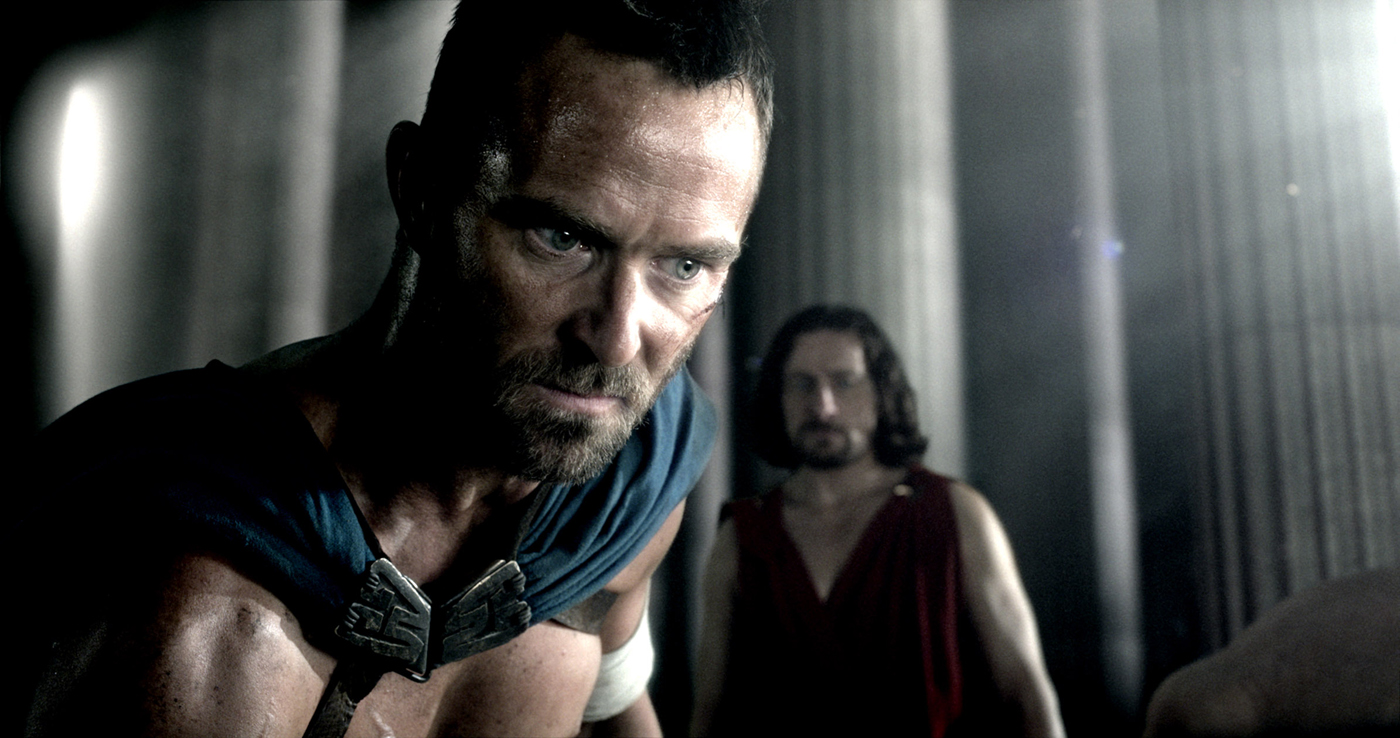REVIEW: "300: Rise of an Empire"
I want you to cast your mind way back into the past for me. No, not as far as 480 B.C. (the time period of Greco-Persian wars) but to 2007, when the first 300 film hit theatres. At the time, the movie struck a chord with audiences, who seem to have enjoyed the totally over-the-top adaptation of Frank Miller’s graphic novel. 300 took the sword-and-sandal genre to its extreme, combining rock music, oiled-up warriors and super-slow-motion fight scenes for a…unique take on ancient Greek warfare.
Most critics saw 300 for what it was: a visually inventive, but mostly nonsensical take on the famous story of the Battle of Thermopylae. Now we come to 2014, and the prequel/sidequel/sequel 300: Rise of an Empire, and it appears that time has not been kind to the 300 series.
Rise of an Empire presents us with a diluted addition to the story that bludgeons the audience with interminable, bloody violence and a laughably self-serious script. Even worse, the limited fun of the original film is replaced with shoddy dialogue and utterly boring characters.
The film makes a bundle of mistakes out the gate by fast-forwarding and reversing in time, trying to simultaneously fill us in on the tale of the 300 Spartans and set up the action of the new film (which itself takes place before, during and after the events we've already seen). All the exposition is done through what feels like 25 whole minutes of narration by Queen Gorgo of Sparta (Lena Headey), the widow of King Leonidas, hero of the first film. Suffice it to say that it wasn’t long before I was both confused by where and when we were in the story, and annoyed that I was seemingly sitting through an audio-book version of the script.
Apparently, this was the best strategy the screenwriters could come up with to relay the Acropolis-sized heap of plot. First, we’re taken through the Battle of Marathon, ten years before 300, and the site of a decisive Athenian victory over the much-larger force of Persian invaders. Then we get some fantasy-fuelled backstory about the 9-foot-tall Persian “god-king” Xerxes (Rodrigo Santoro). After that, we’re treated to even more narrated scenes covering the Persian admiral Artemisia (Eva Green), and her grudge against the Greeks.
It all culminates in a series of naval battles between the tiny fleet of Athenian defenders led by Themistocles (Sullivan Stapleton) and the gigantic armada commanded by Artemisia. At every turn, Rise of an Empire seems dead-set on copying the narrative beats of the first film, showing us how the smaller, well-trained Greek force is a capable match for the hordes of Persian slaves. We also get a too-familiar subplot about a father vainly trying to keep his son out of the battle.
Even this repetition would be fine if it weren’t for the completely numbing use of slow-motion violence. One video producer on YouTube estimated that the slow-mo in 300 lengthened the movie’s runtime by 30 minutes, and I suspect the sequel must double even that number. I lost count of the number of times I wanted to yell out, “Get on with it, already!” when yet another shot turned sword strokes and blood splatters into some sort of zero-gravity dance party.
Don’t get me wrong: I’m more than comfortable with violence in movies. Some of the best films I’ve ever seen made precise, powerful use of violence to punctuate the story. But Rise of an Empire belongs to the “more is more” school of filmmaking, where it’s thought that overdoing everything makes the film stand out.
The screenplay (co-written by Zack Snyder) doesn’t even manage to include any of the kind of quotable lines found in the first film – as cheesy as they might have been, at least they were memorable. In the new movie, most interactions between characters are weak one-liners or silly attempts at inspirational speeches.
Perhaps my main disappointment with Rise of an Empire is that I know that the original Greek histories and myths are a fantastic source for movie scripts. Not only is there enough violence and debauchery for the desensitized modern viewer, but also a richness of character that can thoroughly elevate a movie. Why, then, must filmmakers try to “enhance” ancient Greece with visual gimmickry? We’ll probably be ancient history ourselves before anyone finds out.
300: Rise of an Empire gets one star out of four.
What did you think about the new 300 film? Was it an uber-violent waste of time, or were you able to lose yourself in the stylized visuals? Join the discussion in the comments section, and if you liked this review, share it with your friends and followers!
-




